Parenting is a tough job. It’s tough for parents, and it’s even tougher for kids. There are so many parenting differences that can cause problems in the home. In this blog post, we will explore some of the most common ones and how they can be resolved.
What Is Parenting?
 Parenting is both an art and a science. It is the process of raising and caring for children from infancy to adulthood. Parenting styles can differ greatly, but there are some basics that all parents should follow. There can be different ways to approach parenting, but the goal is always to provide a safe and loving home for children.
Parenting is both an art and a science. It is the process of raising and caring for children from infancy to adulthood. Parenting styles can differ greatly, but there are some basics that all parents should follow. There can be different ways to approach parenting, but the goal is always to provide a safe and loving home for children.
What Are the Different Parenting Styles?
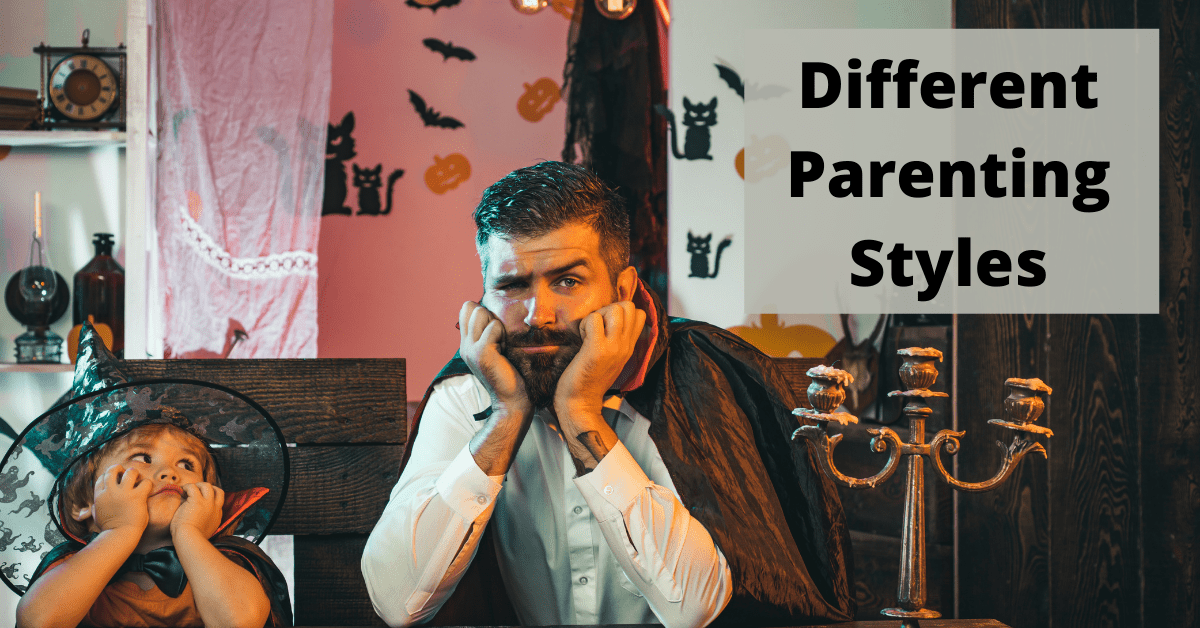
There are four basic types of parenting styles: authoritarian, authoritative, permissive, and uninvolved. Each style has its own benefits and drawbacks. It is important to understand which parenting style best suits your family before you begin raising children.
Authoritarian Style
Authoritarian parents are strict and demanding. They expect their children to obey without question and often use punishment as a way to enforce rules. This type of parenting can be very effective in teaching children right from wrong, but it can also lead to feelings of resentment and rebellion in children.
Authoritative Style
Authoritative parents strike a balance between being demanding and being supportive. They set rules and expectations for their children, but they also listen to their children’s thoughts and feelings. This type of parenting leads to more respectful and cooperative children.
Permissive Style
Permissive parents are very lenient with their rules and allow their children to do whatever they please. While this type of parenting can make life easier for the child, it does not teach them how to handle frustration or disappointment.
Uninvolved Style
Uninvolved parents provide little or no guidance for their children. This can lead to problems such as delinquency or poor academic achievement later in life.
What Are Parenting Differences?
 Parenting differences can be seen in the way parents interact with their children, as well as how they discipline them. Some parents are more hands-on than others, and some rely more on rules and punishments. It is important to find a parenting style that works for you and your family and to be consistent with it. Raising children can be challenging, but it is also one of the most rewarding things a person can do. By understanding the different types of parenting styles, you are taking an important step towards being a successful parent.
Parenting differences can be seen in the way parents interact with their children, as well as how they discipline them. Some parents are more hands-on than others, and some rely more on rules and punishments. It is important to find a parenting style that works for you and your family and to be consistent with it. Raising children can be challenging, but it is also one of the most rewarding things a person can do. By understanding the different types of parenting styles, you are taking an important step towards being a successful parent.
Parenting differences can be seen in the way parents interact with their children…Some parents are more hands-on than others…and some rely more on rules and punishments…It is important to find a parenting style that works for you and your family…Raising children can be challenging, but it is also one of the most rewarding things a person can do.
Types of Parenting Differences
These are types of parenting differences:
Different Interaction Styles
There are many different ways to interact with your children and each has its own benefits and drawbacks. Some parents are very hands-on, while others take a more laissez-faire approach. Some are more likely to use punishments, while others rely on reasoning and explanations. It is important to find a style that works for you and your family.
Different Discipline Styles
There are also many different ways to discipline your children. Some parents rely heavily on rules and punishments, while others take a more hands-off approach. Again, it is important to find what will work best for you and your family. Not all methods of discipline will work with every child, so be prepared to experiment until you find what works best for each individual kid.
Different Parenting Goals
Not all parents have the same goals when it comes to parenting. Some want their children to be obedient and well-mannered at all times, while others are happy if their children are simply happy and healthy. It is important to be clear about what you want from your children and to set expectations accordingly. Different parenting styles may work better for different goals.
Different Parenting Values
These different parenting styles can also be seen as representing different values. Some parents value obedience and respect, while others are more concerned with happiness and freedom. It is important to find a balance between being demanding and supportive so that your children receive the guidance they need without feeling resentful or rebellious toward you.
Signs of Parenting Differences
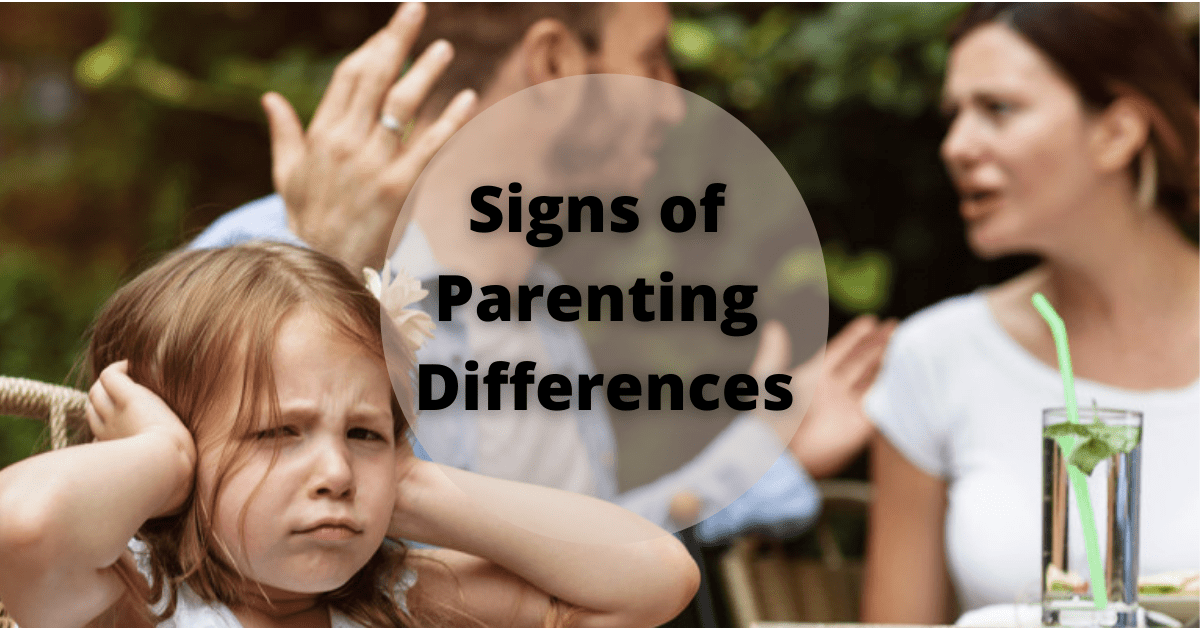
There are signs that there are parenting differences in your family:
Regular Conflicts
When there are parenting differences, regular conflicts tend to arise. This means that there is a constant struggle to find common ground and solve problems. This can lead to an unhappy, unsatisfying life for everyone in the family.
Conflict Resolution Difficulties
Parents who differ greatly on parenting style often have trouble resolving conflicts because they each want their own way. They may not be able to understand or respect one another’s point of view and give up trying before finding ways that will work for both parents as well as children.
Different Rules For Child
One set of rules exists when it comes to disciplining certain behaviors from your child. Those same rules don’t seem to apply when other people’s children misbehave as well. This leads you to believe that maybe some preferential treatment is being given out by these parents. In some cases, both sets of rules exist. This can be very confusing for the child.
Different Levels of Involvement
One parent tends to take a much more active role in raising the child than the other which can create tension since both parents have different visions of what they want their child to be like when they grow up. This can also lead to competition between parents where one is always trying to “be better” than the other.
Different Ideas of Child’s Needs
One parent feels that their child needs much more discipline than the other which leads to conflict. This difference in opinion can lead to one party feeling judged and/or criticized by the other even though neither may mean any harm or ill will.
Different Expectations
One parent expects more from their child than the other. The higher expectations placed on children by one parent can lead to resentment and anger in the child who feels like they are not meeting up to their parents’ standards while at the same time, it makes them feel guilty for not being able to live up to these unattainable goals that have been set out before them which leads to feelings of inadequacy. On top of this, both sets of different expectations often create a lot of tension between parents when there is disagreement over how much is too much or too little discipline because neither party knows if what they’re doing is right or wrong since everyone has such varied opinions about everything! It’s really hard trying to please two people with entirely different wants and needs.
Reasons For Parenting Differences
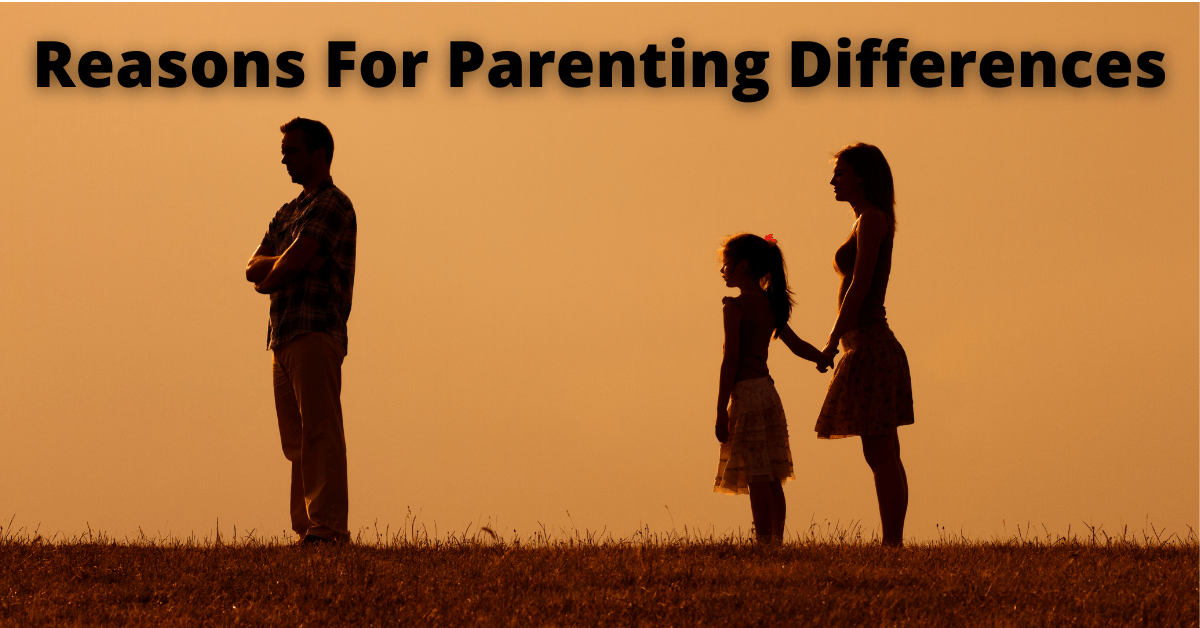
There are some common reasons why parents may use different parenting styles. These include:
Different Personalities
Many people come to their own parenting style based on what worked for them as children and how they feel each child should be raised differently. For example, some children are very sensitive or high-strung, while others are more easygoing and relaxed. Because of this difference in temperament, it makes sense that these types of kids would need different kinds of guidance from their parents.
Different Situations And Circumstances
Some people also choose a certain type of parenting because the situation calls for it. If your life is hectic with work or other responsibilities outside the home, you might find yourself raising your child more hands-off than usual so that they can be more independent and responsible. If your child is going through a particularly rebellious phase, you may find yourself relying much more on rules and discipline to instill obedience.
Different Roles for Each Parent
While both parents take on roles as caretaker, provider, protector, etc., they have different expectations when it comes to what role each should play in raising a family with children together. One expects certain things from the partner while another is used to doing most everything themselves without needing help from anyone else. These differences often result in tension between partners causing discord within a relationship where there was none before these parenting issues arose.
Different Past Experiences
Many people find themselves as parents by way of having children because it’s what they think they’re supposed to do, or by accident. Others may have chosen parenthood out of a desire to be closer with their partner and share those wonderful experiences together. Whatever the reason for deciding to become parents is, there are many different types of parenting styles based on how each person feels about certain things such as whether or not kids should be raised gender-neutral or if spanking is an effective form of discipline.
Different Mindset
Another reason for parenting differences is the difference in mindset between parents. This pertains to how they make decisions about their child’s life and what is best for them. Some people tend to lean more towards doing things that are fun or enjoyable, while others prefer safety over everything else when it comes down to making a choice of whether or not something is “okay”. Still, other parents may be very strict with rules and don’t allow anything unless it’s directly related to keeping the child alive, healthy, happy, and safe at all times.
Impacts of Parenting Differences on Children
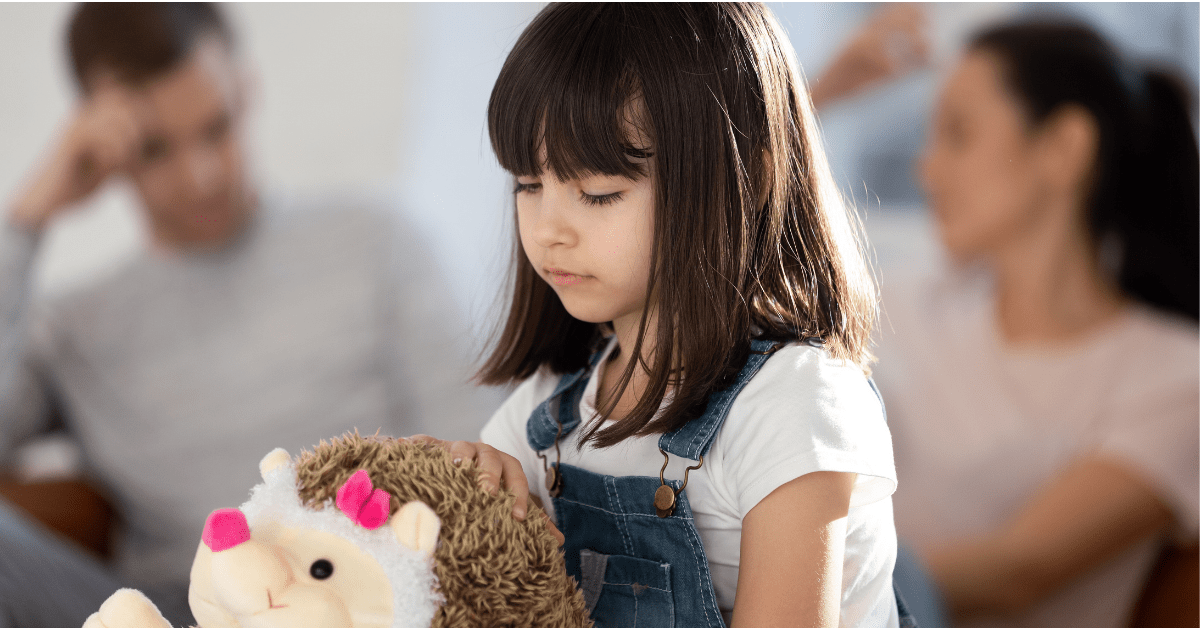
There can be many impacts of parenting differences on children, some of which are positive and some of which are negative.
Positive impacts can include:
- Having different parenting styles gives children a chance to learn about different ways of doing things and how to handle different types of situations.
- It allows them to develop their own personality as they see how each parent reacts in various circumstances.
- Children may also learn problem-solving skills at an earlier age as they try to navigate through the waters of differing opinions between parents.
Negative impacts can include:
- If one parent is more hands-off than the other, this could lead to the child feeling neglected or unsupported emotionally.
- If one parent is stricter with rules than the other, this could lead to children feeling overly restricted or even branded as a “bad kid” if they don’t fit into what one parent expects from them.
- Certain decisions about life are made by parents differently, this could cause the child to feel confused and conflicted when it comes time for them to make their own choices in life.
How To Cope-Up With Parenting Differences?
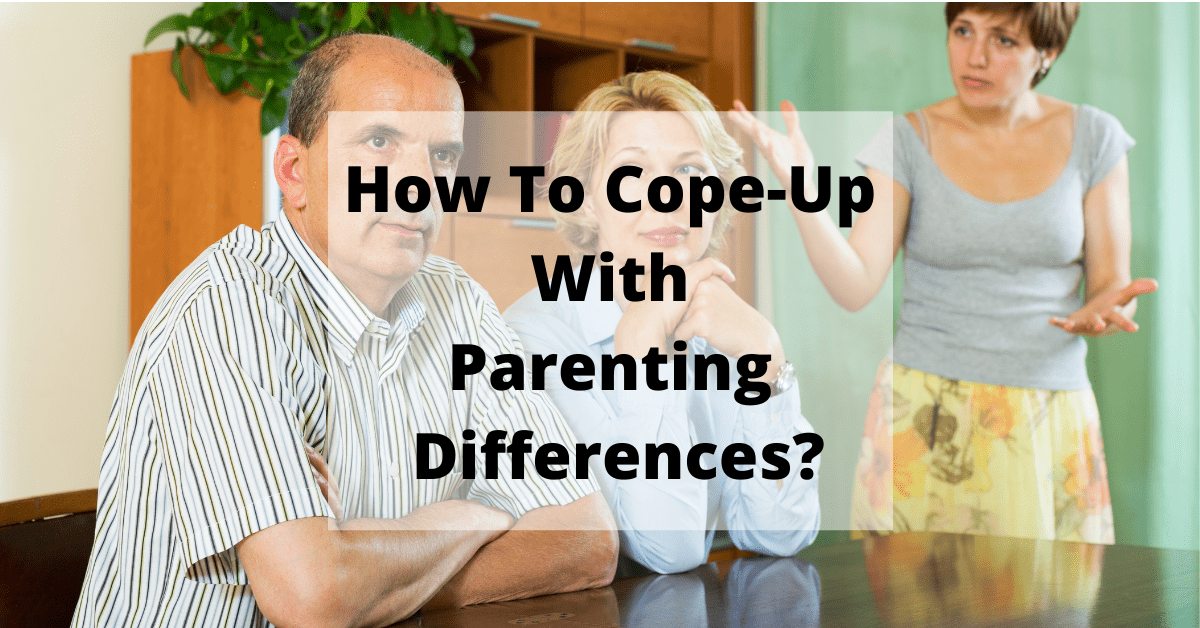
There are many ways to cope up with parenting differences.
Talk About It
The first step towards handling the matter is to talk about it with your partner. You can do this by calmly discussing each other’s opinions and reasons for them as well as brainstorming ideas on how both of you could come up with a solution together that satisfies everyone involved.
You should not go into this conversation trying to “win” or prove one parent wrong, but rather aim to find a middle ground where all parties are happy.
Don’t Blame Other Parent
It’s important to remember from the beginning that parenting differences aren’t anyone’s fault. It isn’t because either of you is doing anything wrong or being neglectful parents but instead comes down more so to personal choices in terms of what feels right and how much trust you have in one another.
Be Compassionate and Understanding
If your partner makes a decision that you don’t agree with, try to be compassionate about it instead of immediately getting angry or upset. Remember how they feel when making these kinds of choices for their child(ren) and give them the benefit of the doubt because there’s probably something behind what made them decide on that particular solution. While this can take time before both parents are at ease with each other again, having an open dialogue is key in terms of being able to move forward together without feeling like either parent will no longer stand up for themselves or their opinions.
Try To Respect Parenting Differences
If you can’t come to a solution with your partner, it’s important that both of you try to respect each other’s parenting differences. This means not calling the other parent out or saying derogatory things behind their back. This is while trying to make decisions about how best to raise your children together. This is without involving the child in the conversation at all. Try focusing more on what actually matters. This is rather than choosing battles over small differences and trusting one another when they say they’ve made a choice. It is because everything was thought through carefully beforehand. This is instead of going into assumptions that something is “wrong”. This is just because there are disagreements between parents.
Focus On Positive Aspects Of Your Partner
Lastly, if none of these strategies work for either parent then perhaps it may be time to focus on the positive aspects of your partner as a parent instead. Think about what they do right and how much you appreciate them for being there for their children without constantly complaining or trying to make decisions behind one another’s backs.
Give Second Chances
Remember that both parents are doing the best they can when it comes to parenting their children. They probably aren’t perfect but should be given a chance because of this fact alone. If you have made mistakes in the past, try asking them for another chance on being more understanding or open-minded towards decisions that affect your family as a whole rather than just focusing solely on what matters most to you at any one moment in time.
Be Consistent
If there is any inconsistency between rules set out by different parents then consider establishing some boundaries so kids know where they stand with regards to certain issues and don’t feel confused about whether something is okay or not simply based on who’s around at the moment.
Don’t Try To Force Agreement
If you find that both parents aren’t being able to come to a common ground with one another, don’t force it. This will only create resentment. It will also cause the children more stress. This is because they try to figure out who is right or wrong. This is in terms of their thoughts on certain issues. Instead, just let them know what boundaries have been set by each parent. This is so that kids understand where the line stands. It is without going against rules made by either parent.
Be Willing To Compromise
If neither sets of parents are willing to compromise then maybe it’s time for a change. This is because it would be best for everyone involved. This is rather than having a child caught between two different opinions constantly. It is because no matter how hard anyone tries there won’t ever be a unified parenting plan that works for everyone involved.
Focus On What Matters Most To Children
In the end, it’s important for both parents to focus on what matters most to the children. They should try their best not to get wrapped up in adult disputes. Those disputes have nothing whatsoever to do with raising kids properly. This means not letting personal issues cloud one’s thoughts on what is best for the children, no matter how upset it makes either parent feel.
Conclusion
In conclusion, it’s important for parents to try and respect one another when it comes to parenting differences. This means not going into assumptions that the other is “wrong”. This is just because they have a different opinion on something and trying harder to have an open dialogue. This is in order to move forward without any resentment. If none of these strategies work, then perhaps it may be time to focus on the positive aspects of your partner as a parent instead. Lastly, remember that both parents are doing their best to give them second chances whenever possible. Be willing to compromise if necessary for the benefit of your child.
For more information, please contact MantraCare. Parenting is a challenging yet rewarding experience that is crucial for the development and well-being of a child. If you have any queries regarding Online Parenting Counseling experienced therapists at MantraCare can help: Book a trial therapy session


